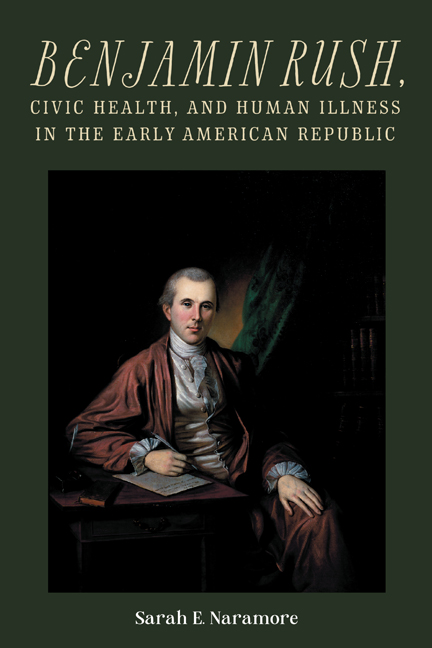7 - Care, Curing, and Prevention in American Institutions
Published online by Cambridge University Press: 10 January 2024
Summary
Despite Benjamin and Julia Rush's best efforts to raise healthy and useful children, tragedy struck the family in 1807. Their eldest son John shot and killed a fellow naval officer named Benjamin Turner—a friend “as dear to him as a brother”—in a duel. Shocked by what he had done, John fell into a deep depression recorded as an “insanity.” His grief (and probable feelings of guilt) led him to neglect his health and hygiene and even attempt suicide, according to reports sent to the Rush family. This pattern persisted through 1808 and part of 1809. Suddenly, John appeared to recover and had returned to duty by the time Benjamin sent a letter to John Adams on the subject on August 14, 1809.1 By this point, the letters between the two men were deeply personal and often touched sensitive subjects. It is unlikely that Benjamin would have lied to one of his closest confidants on the matter.
John's recovery, however, proved temporary. Shortly thereafter, in February 1810 at the age of 33, John Rush became his father's patient at the Pennsylvania Hospital in Philadelphia, still suffering from depression and delirium. The young man was incarcerated in a specialized wing for those suffering from “diseases of the mind,” which Benjamin had lobbied for almost two decades earlier. John never recovered, developing psychosis within a few years of his depression, and died in the hospital on August 9, 1837. At that point, he believed himself to be a successful Louisiana planter and the hospital a plantation. Visitors claimed that he walked up and down the yard each day surveying his “property.”3 While his attempts at self-harm subsided within a few years John never regained his sense of self and hospital staff never deemed him recovered enough for release. Like many others who suffered from acute and chronic ailments of the mind in the nineteenth century, an institution became his whole world.
To his father, John's illness and decline demonstrated the risks of reckless living, dueling, and a lack of self-control that could damage individuals and societies.
- Type
- Chapter
- Information
- Publisher: Boydell & BrewerPrint publication year: 2023

